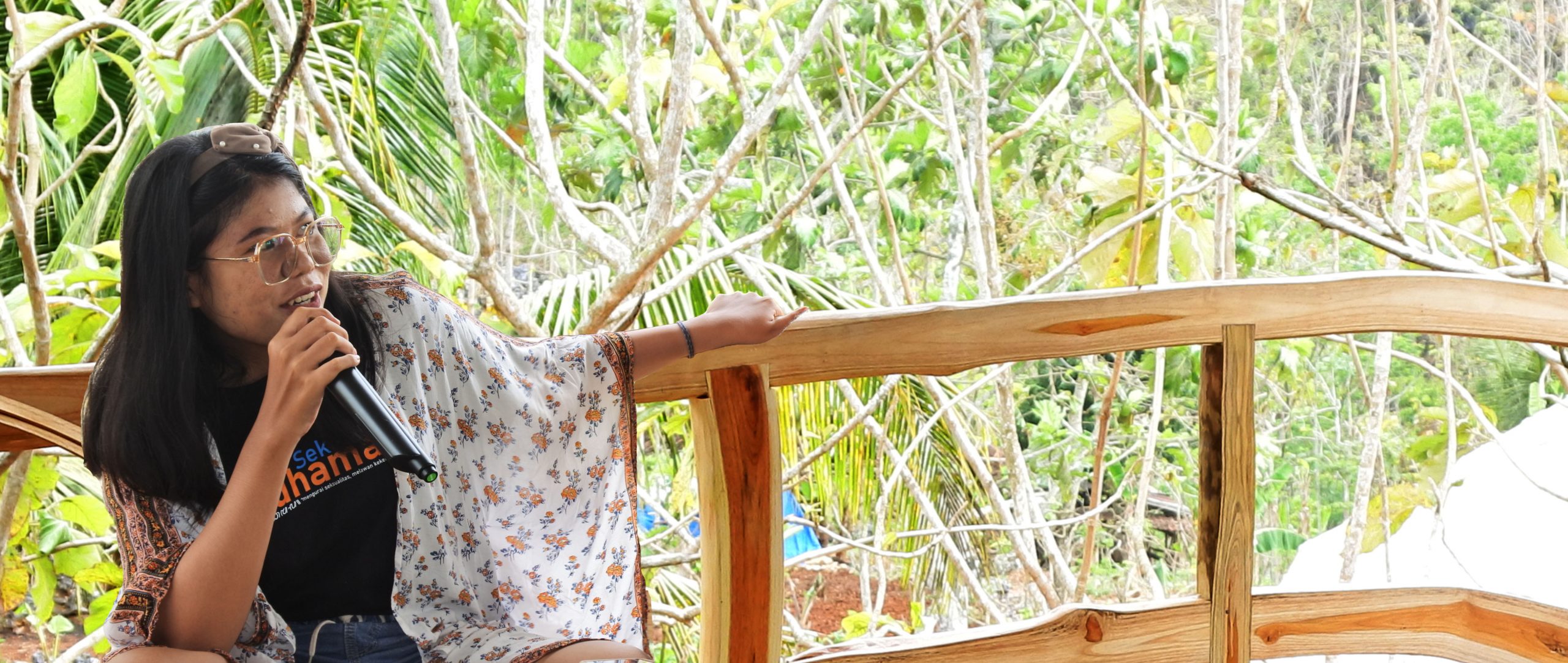By: Khawakibb***
Tolerance is a word that we often hear and is often heralded. In a country with a very diverse society, this word seems to be an effective answer to overcome all kinds of differences and the frictions they cause. But have we ever thought about whether this word is only used to answer the problem of diversity of religions and beliefs, or for all kinds of diversity of citizens?
In the Great Dictionary of the Indonesian Language (KBBI), “tolerance” means a measuring limit for additions or subtractions that are still permitted. The actualization of tolerance for each individual is different. The tolerable measuring limits vary widely. There are those who tolerate something willingly, namely respecting and appreciating it. There are those who appreciate it enough without wanting to interfere. But what is confusing is that someone who claims to be ‘tolerant’ is actually the strongest in rejecting certain things.
‘Tolerance’ is commonly interpreted as an attitude of mutual respect and appreciation for adherents of other religions, so that the ‘tolerance’ that many people usually understand is actually specifically religious tolerance. Meanwhile, religion and belief are just one aspect of the diversity of society in this country and the world.
Tolerance towards different beliefs in Indonesia has been expressed for a long time because quite many people have instilled it. It’s a different story when it comes to tolerance for the other differences, for example, differences in sexuality, which include a person’s sexual orientation, gender expression, and gender identity. So it is very rare for us to listen to calls to be tolerant of all of these.
Instead of being tolerated, oblique accusations were launched first. Starting from accusations of “insanity” to “rebellion against God”. Not to mention making access difficult for individuals who are seen to be different with less humane rules, as if all their movements are a mistake.
Many people claim to be tolerant towards oppressed people, marginalized groups but actually discriminate against people with diverse sexualities. For example, many people shout to defend the rights of religious minority communities or the rights of people of different races but oppress trans women. What is the difference between a trans woman and other minorities? Aren’t they both from marginalized groups? Aren’t they both human beings who need protection, have the same human rights? Then why should we alienate them?
Again, tolerance does not mean our “complete agreement” to be like them, but we do not prevent them from getting their rights as human beings and citizens. Including treating them the same as other humans, and not accusing and stigmatizing them with negative labels. It would be a shame if the term ‘tolerance’ were not accompanied by real actions. Some claim to be tolerant, but are still cynical when they see the existing diversities. Anyone can say that they have a tolerant attitude, but is that aligned with their behavior?
I often find slanted comments from netizens who initially seem to have a tolerant attitude, but in the end, they point fingers. They hide behind the word “but”. As commented by one netizen on a trans woman’s Instagram account who was capturing her happy moments on holiday. The comment was more or less like this: “I respect and tolerate gender diversity, but please don’t seem to persuade others.”
Cynical comments are often expressed without empathy. How can someone who only uploads moments of happiness on social media be accused of persuading other people to follow their choices? Why is it so difficult to let someone enjoy their life happily just because they are different? Isn’t their diversity not harming us in real terms? Our money is not reduced just because we see their uploads. We also won’t necessarily become part of them just because we see their contents on social media.
So, for some reason, in my opinion, tolerance towards religious diversities seems easier to do and promote than tolerance towards sexual diversity. A person can respect neighbors who have different beliefs and religions than respecting neighbors who have different gender expressions or sexual orientations. Even if they both behave well and have never hurt anyone in the surrounding area.
It is time for tolerance education that only focuses on certain forms of diversity to be expanded in scope. Sexual diversity which in reality is very close to us should start to receive attention.
Indonesia, as a multicultural country, has a lot of diversity. Not only cultural, religious, linguistic, but also sexual. However, the latter is rarely seen in public, even though there are only a few. For example, the diversity of indigenous communities in Bugis which has at least five genders, namely oroane (male), makkunrai (female), bissu (representing aspects of women and men, who become spiritual leaders after going on the Hajj), calabai (representing aspects of being born male and then becoming a woman), and calalai (representing the aspect of being born female and then becoming a man).
In Javanese society, there are also well-known wayang characters who have more diverse sexuality than most. Let’s just say Srikandi, who is famous as an androgynous figure. Srikandi was born as a woman but is described as having masculine traits.
So, let’s reflect again on what actually is ‘tolerant’? If tolerance is only intended for certain types of diversity and a sense of respect can only be enjoyed by certain groups, perhaps the tolerance we practice is not yet complete. Tolerance towards diversity should not be done through favoritism. One of the goals of tolerance is to create a healthy, peaceful, equal and just environment. If tolerance or mutual respect is still practiced selectively, I am sure that the desired peace and justice will be difficult to uphold. []
*** The author is an alumni of the 2nd Cohort of Sudhamala School held by Umah Ramah in 2023.
This article was translated by Napol Riel.
